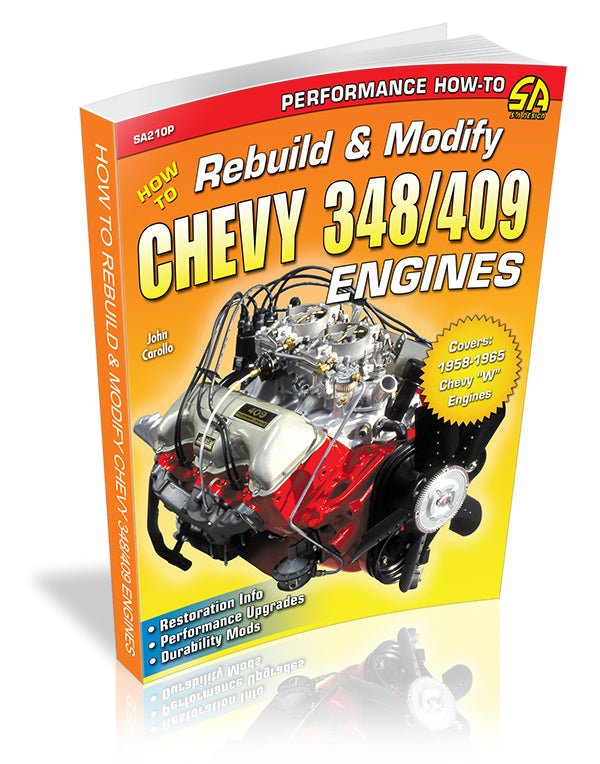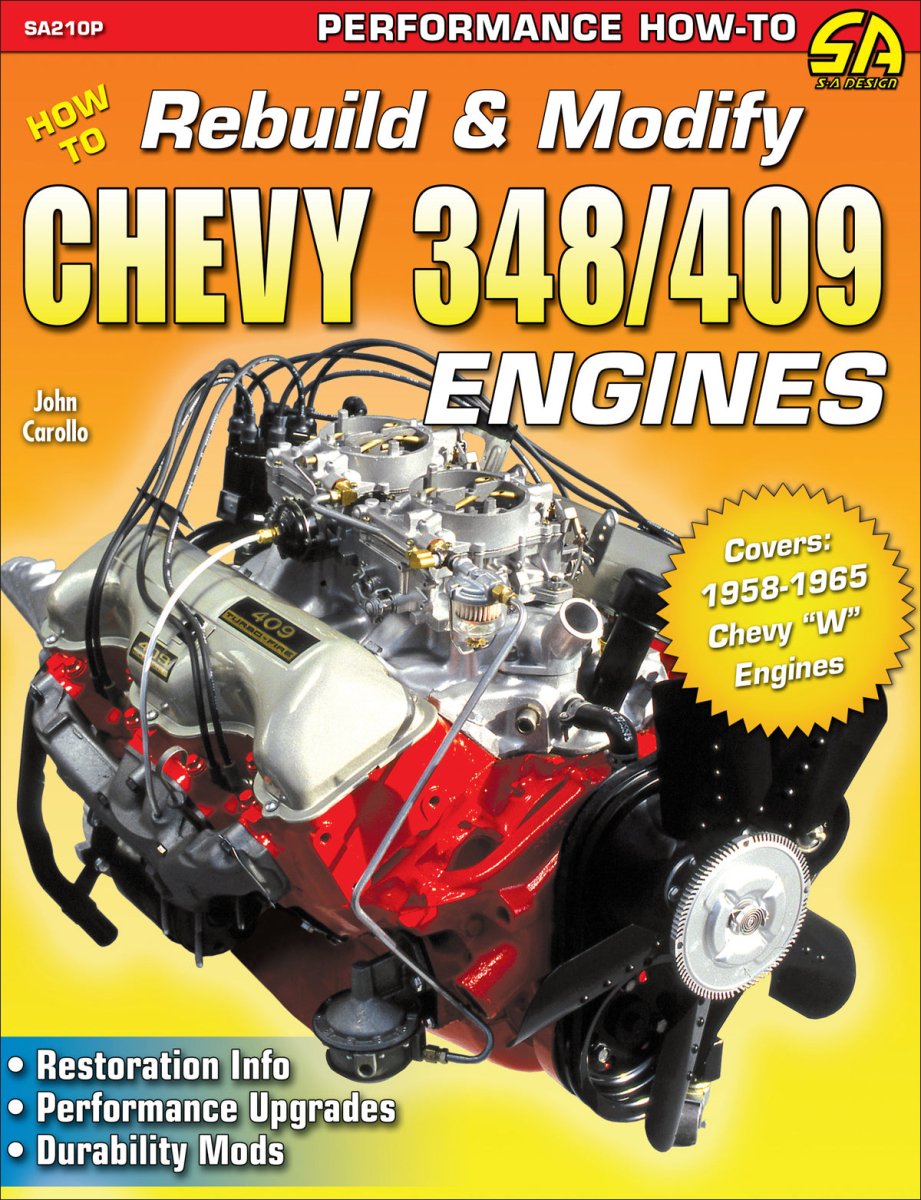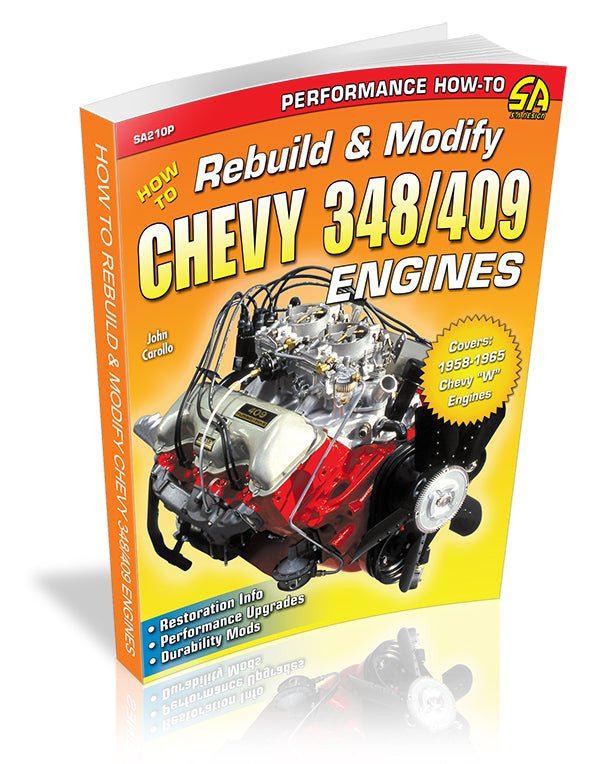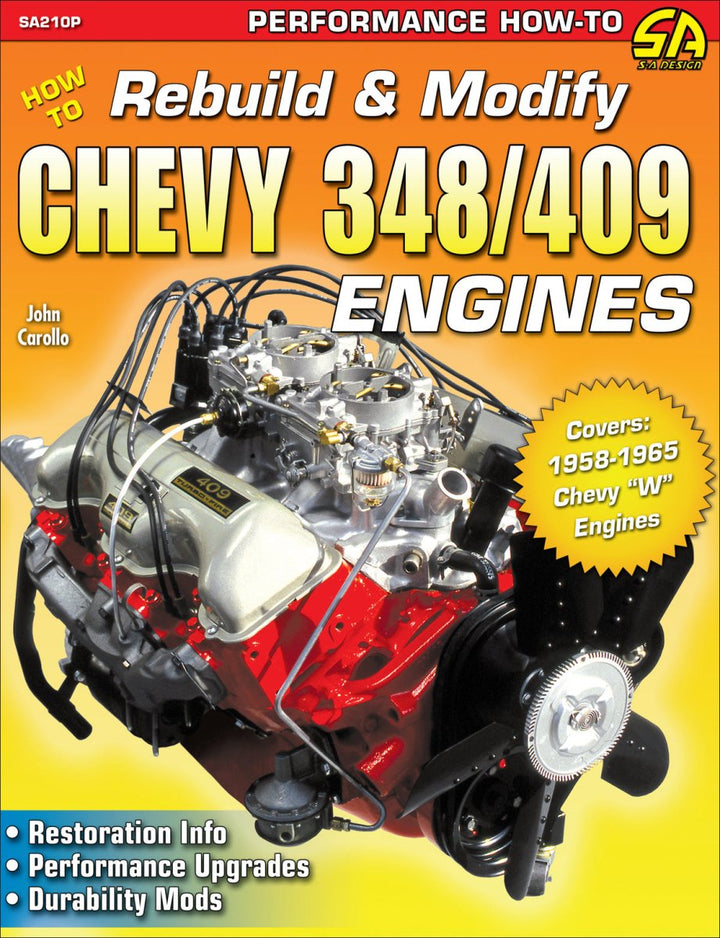Chevy's W-series 348 and later the 409 became legends on the street, and in particular the 409 also became a legend on the track. In the early 1960s, these engines powered a variety of GM vehicles and the Z11 Impalas at the drag strip. While these engines enjoyed a hay day in the early 1960s and pop culture status in the hot rod community, especially with the Beach Boys and their hit song "409", higher horsepower Mark IV Chevy big-block engines overshadowed these W-engines by the late 1960s. But recently, the 348s and 409s have enjoyed a high-performance renaissance and many speed manufacturers are making heads, blocks, and virtually every part for these engines.
Veteran magazine writer and author John Carollo provides insightful instruction for rebuilding a stock engine and also how to build a sound performance W-engine as well. The reader is shown how to select a strong clean block, free of core shift and fatal cracks, select the best heads for a particular build, and increase the compression ratio. Selecting a camshaft and a strong connecting rod and piston combination is also an important aspect of the engine build, and all options are examined.
Guidance in this book will allow you to select the right cam for a high-performance aftermarket package and a cam that won't over power a stock engine's valve train. In addition, building a large displacement stock engine of 427 inches or aftermarket block to go to 509 inches is covered. From mild to wild, from stock to modified, the book covers everything you need to know about the legendary 348-409 engines.
Introduction
Chapter 1: Development and Design
History
Internal Specifics
Chapter 2: Engine Block
Block Identification
Washing and Magnafluxing
What to Check on W Blocks
Inspection Process
Block Preparation
Oiling System
Aftermarket Manufacturers
Chapter 3: Crankshafts, Rods and Pistons
Crankshafts
Connecting Rods
Pistons
Machining
Chapter 4: Cylinder Heads
Design Features
348 and 409 Differences
Machining
Head Selection
Stock Head Modifications
Aftermarket Head Manufacturers
Chapter 5: Camshafts and Valvetrain
Stock Cam Timing Specs
Flat-Tappet Camshafts
Roller Camshafts
Lifters
Cam Selection8
Aftermarket Manufacturers
Pushrods
Rocker Arms
Valves
Valvesprings, Retainers and Locks
Timing Chain Set
Chapter 6: Induction and Ignition
Intake Manifolds
Carburetors
Ignition
Chapter 7: Headers and Exhaust
Header Development
Exhaust Design
Chapter 8: Cooling System
Design Factors
Cooling Capacity
Radiators
Water Pump
Fans
Airflow
Chapter 9: Stroker Engines
Stroker Math
Clearancing
Cam and Head Selection
Four-Bolt Main Bearing Conversion
Stroker Kits
Popular Combinations
Chapter 10: Teardown and Inspection
Removal
Inspection
Cleaning
Testing
Measuring Parts
Chapter 11: Engine Assembly
Proper Lubrication
Subassemblies
Block
Valves and Hardware
Cam Bearing Installation
Main Bearings
Crankshaft
Camshaft
Pistons
Degree the Camshaft
Front Dampener
Oil Pump, Windage Tray and Oil Pan
Cylinder Head
Intake and Ignition
Source Guide





